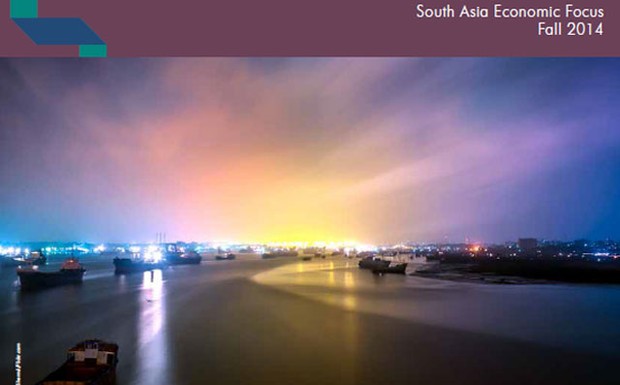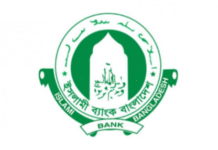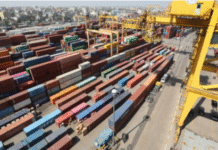The World Bank has said Bangladesh has found its way back to political stability and has forecast that GDP growth will recover as a result, rising to 6.2 percent.
But it said that this would depend on continued macroeconomic stability and a boost for domestic consumption from remittances and for aggregate demand from public infrastructure investments.
In the latest edition of World Bank South Asia’s Economic Focus, the global lender forecast that South Asia’s regional economy will expand by a real 6 percent in 2015 and by 6.4 percent in 2016 compared to 5.4 percent this year.
The industrial sector remained the primary driver of GDP growth in Bangladesh, the report said.
High rates of inflation brought about partly by the political unrest of late 2013 had come down to a stable level, it said.
Robust export growth helped lower the trade deficit and foreign exchange reserves continued to accumulate despite the 1.6 percent decline in remittance, the report observed.
It said that while macroeconomic policies had stayed their course, the financial sector was not yet out of the woods. Private sector credit growth has remained subdued, it said, reflecting that some of the political uncertainty had lingered.
The report observed that Bangladesh has continued to make remarkable progress in poverty reduction and shared prosperity, with employment and wage growth increasing the income of the bottom 40 percent of the population.
“To achieve inclusive growth in the near term, Bangladesh will need to sustain GDP and remittance growth recovery, create jobs, contain inflation, and make progress in improving the quality of service delivery in health and education,” it said.

The report said the government should finish crucial and ongoing infrastructure projects like the Dhaka-Chittagong and Dhaka-Mymensingh highways, double-tracking of the Dhaka-Chittagong railway, the Padma bridge, the Dhaka metro rail and two Bibiyana gas field-based power plants.
It recommended swift and complete transformation of the garment industry.
It also recommended enacting the Public Private Partnership (PPP) law and equipping the PPP office with experienced, knowledgeable staff to develop, negotiate, and supervise PPP projects.
The government should also award contracts to develop special economic zones, the report said.
Source: Bd news24










